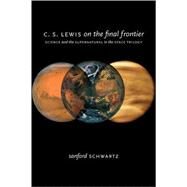C. S. Lewis on the Final Frontier Science and the Supernatural in the Space Trilogy
, by Schwartz, Sanford- ISBN: 9780195374728 | 019537472X
- Cover: Hardcover
- Copyright: 7/2/2009
In C.S. Lewis on the Final Frontier, Sanford Schwartz offers a penetrating new reading of Lewis's celebrated Space Trilogy, moving beyond the conventional view that reduces these novels to a simplistic struggle between a premodern cosmology and the modern scientific paradigm that had supplanted it. In this groundbreaking study, Schwartz shows how each of the novels in the trilogy takes up a distinct facet of the conflict between Christianity and the tendencies of modern thought that arose in the wake of the Darwinian revolution. In Out of the Silent Planet (1938), the target is evolutionary naturalism, primarily as it appears in the science fiction of H.G. Wells. In Perelandra (1943), it is the alluring but perilous doctrine of "creative evolution" inaugurated by Henri Bergson. In That Hideous Strength (1945), it is a eugenically inspired program designed to control the evolutionary process and thereby achieve everlasting dominion over the planet. In each case, Schwartz argues that Lewis is more deeply engaged with modern developments in science and philosophy than is generally assumed, and far more prepared to explore the possibilities for transfiguring these developments in ways that are not only compatible with traditional Christian doctrine but also speak to the distinctive concerns of modern existence. Taken together, Schwartz's readings call into question Lewis's self-styled image as a "dinosaur" out of step with the main currents of modern thought. Far from a simple struggle between an old-fashioned Christian humanism and a newfangled heresy, Lewis's Space Trilogy should be seen as the searching effort of a modern religious apologist to sustain and enrich the former through critical engagement with the latter. Schwartz's study of these novels is sure to interest scholars, students, and Lewis's many devoted fans.







